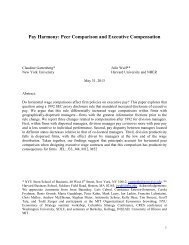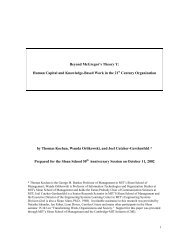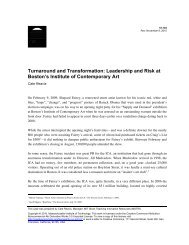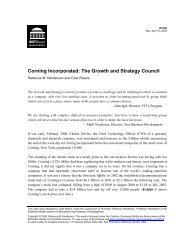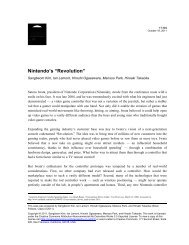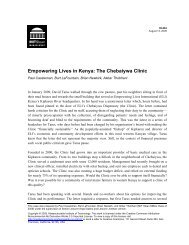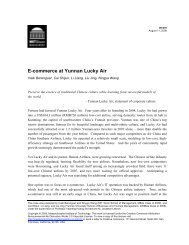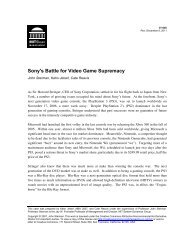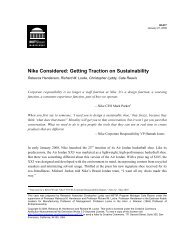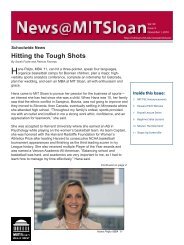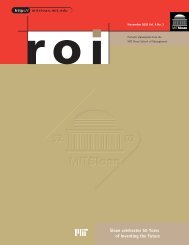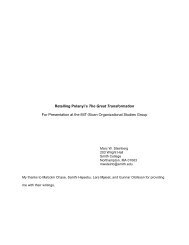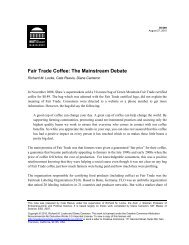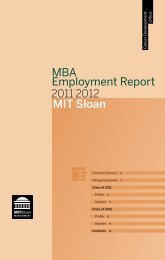Understanding earnings quality - MIT Sloan School of Management
Understanding earnings quality - MIT Sloan School of Management
Understanding earnings quality - MIT Sloan School of Management
Create successful ePaper yourself
Turn your PDF publications into a flip-book with our unique Google optimized e-Paper software.
errors when litigation risk is high. Using archival data, Heninger (2001) finds that shareholder<br />
lawsuits against auditors increase with discretionary accruals.<br />
Auditor tenure: Johnson, Khurana, and Reynolds (2002) find no evidence that long auditor tenure is<br />
associated with low <strong>earnings</strong> <strong>quality</strong>, measured by the magnitude <strong>of</strong> discretionary accruals and the<br />
persistence <strong>of</strong> accruals. Chen et al. (2008) show that audit partner tenure is negatively associated<br />
with the magnitude <strong>of</strong> discretionary accruals in a sample <strong>of</strong> Taiwanese companies.<br />
Revolving-door auditors: Menon and Williams (2004) report that hiring former auditing partners as<br />
<strong>of</strong>ficers, which they suggest might compromise auditor independence, is associated with two proxies<br />
for lower EQ: higher discretionary accruals and a higher likelihood <strong>of</strong> meeting analyst forecasts.<br />
However, using a longer sample period, Geiger, Lennox, and North (2008) find no evidence that<br />
such appointments are associated with lower financial reporting <strong>quality</strong>, as measured by<br />
discretionary accruals and the likelihood that the firm is the subject <strong>of</strong> an SEC enforcement action.<br />
5.4.4 Summary<br />
We began this section by discussing the theoretical foundation for the prediction that auditor<br />
effort/effectiveness can mitigate accounting misstatements. Auditor effort/effectiveness, however, is<br />
unobservable. Evidence from experiments and surveys suggest that greater effectiveness,<br />
specifically related to recognizing audit risk and adjusting the audit process, 61 decreases observed<br />
<strong>earnings</strong> management. The most direct empirical proxies for effort/effectiveness such as hours spent<br />
auditing and auditor industry expertise, also are negatively associated with <strong>earnings</strong> management.<br />
However, one must use caution when interpreting the evidence that uses indirect proxies for auditor<br />
effort/effectiveness such as fees and audit firm size. To mitigate misstatements, auditors must both<br />
61 Uecker, Brief, and Kinney (1981), however, conclude that the perceived aggressiveness <strong>of</strong> the auditor (both internal<br />
and external) does not deter <strong>earnings</strong> management behavior by management based on a field experiment that employed<br />
business managers.<br />
106



